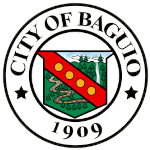Baguio City Day in the Philippines Date in the current year: September 1, 2026
 Baguio City Day (Araw ng Lungsod ng Baguio) is a special non-working holiday in Baguio, Cordillera Administrative Region, Philippines, It is celebrated annually on September 1 to commemorate the day when Baguio was converted from a municipality to a city.
Baguio City Day (Araw ng Lungsod ng Baguio) is a special non-working holiday in Baguio, Cordillera Administrative Region, Philippines, It is celebrated annually on September 1 to commemorate the day when Baguio was converted from a municipality to a city.Baguio is a first-class highly urbanized city in the Cordillera Administrative Region of the Philippines. It is known as the “Summer Capital of the Philippines” due to its cool climate and as the “City of Pines” due to being situated in the Luzon tropical pine forests ecoregion. Baguio is a major business, commercial and educational center in northern Luzon, as well as the seat of government and most populous city in the Cordillera Administrative Region.
The indigenous name of the settlement was Kafagway. The name Baguio originated during the American colonial period. It is derived from the Ibaloi word bagiw (moss), which was later hispanicized as Baguio.
The Spanish arrived in the region in the 16th century, but they never managed to fully subjugate the area because of its mountainous landscape and lush forests, which enabled the indigenous tribes to employ successful defense tactics. In 1755, Augustinian friars established a mission just outside of what is now Baguio, but the locals drove its population out the following year.
In 1846, the Spanish established a command post in La Trinidad and organized the province of Benguet into several dozen small, rural settlements called rancherías. Оne of these rancherías was Kafagway, which consisted of just about 20 households.
In the late 19th century, most of the land in Kafagway was owned by the local chieftain Mateo Cariño. During the Philippine Revolution, Filipino freedom fighters under the command of Pedro Peterno took over the government in Benguet and converted Kafaguay into a proper town, with Mateo Cariño as its first mayor.
After the defeat of the Philippines in the Philippine-American War, the American colonial government took over. The Americans established the town of Baguio at the site of Kafaguay. On September 1, 1909, the new government converted Baguio from a municipality to a city and officially nicknamed it the “Summer Capital of the Philippines”. The anniversary of its conversion is now celebrated as Baguio City Day.
Following the Japanese invasion of the Philippines in December 1941, Baguio was declared an open city and subsequently occupied by the Japanese, who used Camp John Hay in Baguio as their military base. The city was liberated in the Battle of Baguio that occurred between February 21 and April 26, 1945.
Baguio quickly recovered once the war was over and earned a reputation as a prime tourist destination. After the creation of the Cordillera Administrative Region in 1987, Baguio was designated as its seat of government. The 1990 Luzon earthquake destroyed some parts of the city, damaging a significant number of buildings and infrastructure, but Baguio has been rebuilt since then with the aid from the national government and foreign donors.
- Category
- Anniversaries and Memorial Days
- Country
- Philippines
- Tags
- Baguio City Day in the Philippines, holidays in the Philippines, special non-working holidays, regional observances